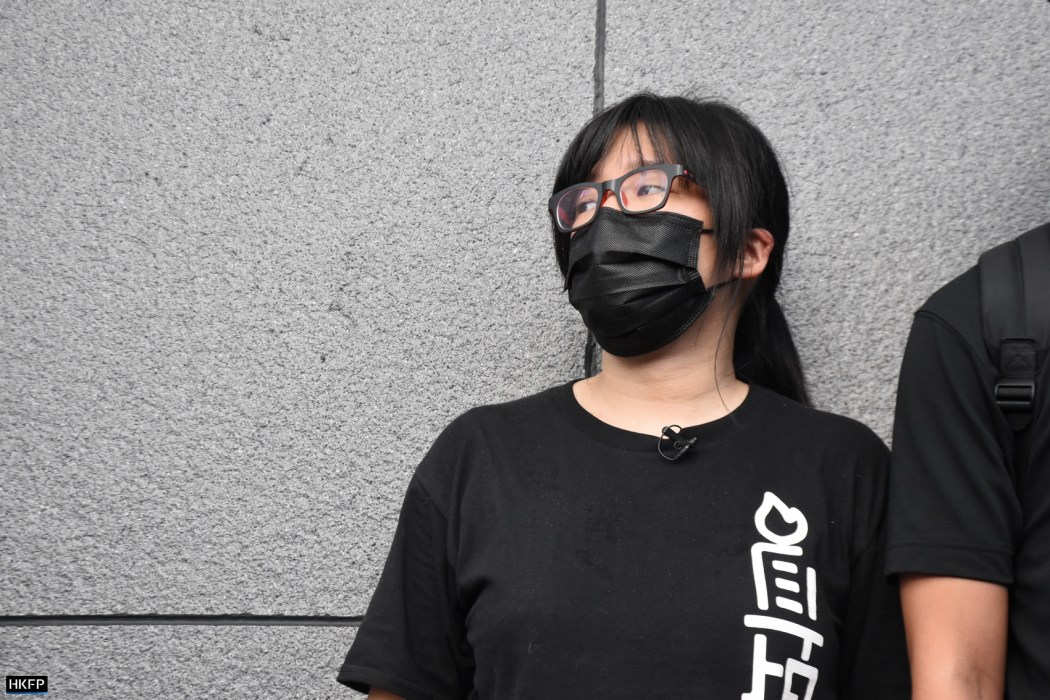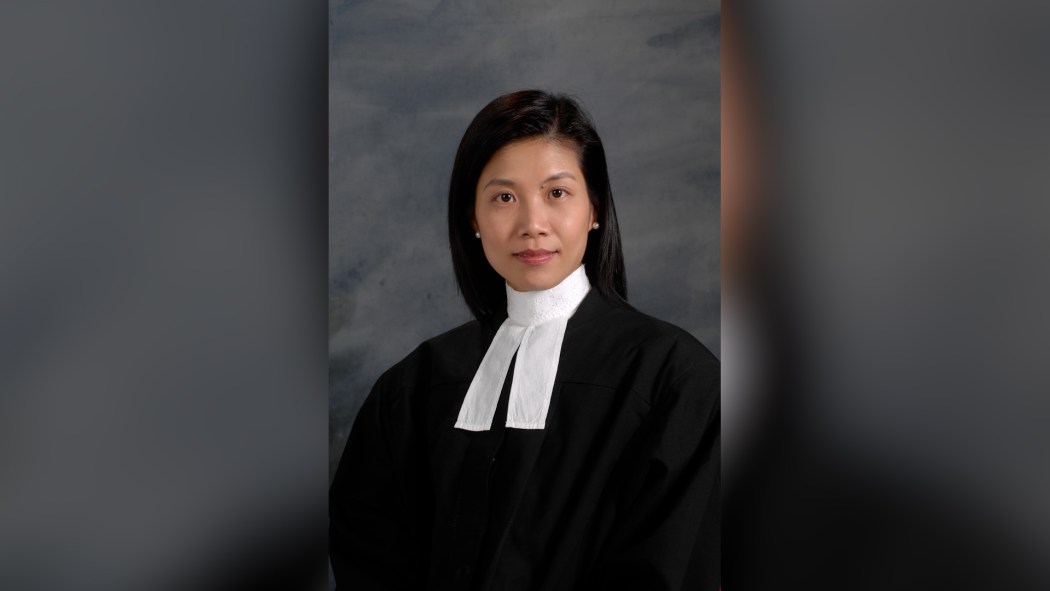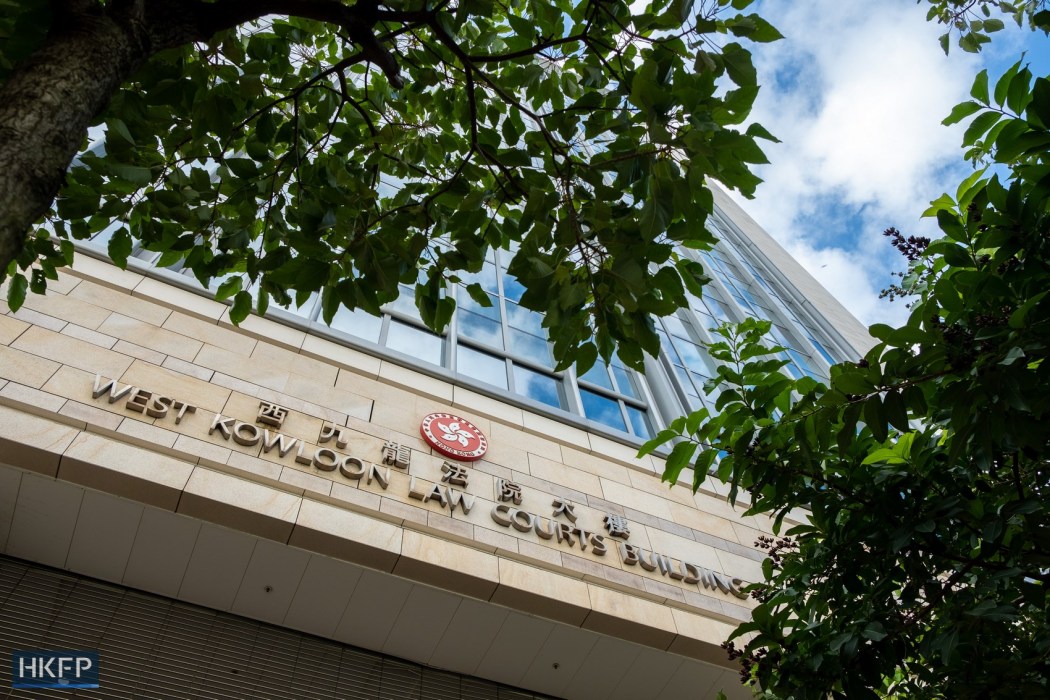The group that organised Hong Kong’s annual Tiananmen vigil was not “anti-China,” activist Chow Hang-tung said in court on Friday as the inquiry into the strength of the national security case against her began.
Chow, the former vice-chair of the Hong Kong Alliance in Support of Patriotic Democratic Movements of China, appeared at the West Kowloon Magistrates’ Courts in front of Acting Principal Magistrate Veronica Heung.

Chow, along with the Alliance and two of the group’s former leaders Lee Cheuk-yan and Albert Ho, stands accused of incitement to subversion under the Beijing-imposed national security law. All intend to plead not guilty.
After the prosecution applied to transfer the case to the Court of First Instance, Chow elected to have a preliminary inquiry, during which a magistrate has to determine whether the prosecution has a case against Chow.
Court reporting restrictions on this hearing were lifted after Chow won a legal challenge against Principal Magistrate Peter Law’s decision to reject her application to remove the restrictions.
After dealing with some arrangements for evidence arrangements, Heung asked whether Chow intended to plead guilty.
“It is impossible [for me] to plead guilty, pursuing democracy is not a crime,” Chow said in response. “I plead not guilty.”

Chow, represented by barristers Erik Shum and Yvonne Leung, did not call on any prosecution witness.
Chow was asked about the five operational goals of the Alliance: release the dissidents, rehabilitate the 1989 pro-democracy movement, demand accountability for the June 4th massacre, end one-party dictatorship, and build a democratic China.
The former vice-chairperson said that it was “impossible” to take one goal and view it in isolation, adding that “the country’s biggest obstacle to democracy” was the one-party ruling system.
Chow also said that while the interpretation of the goals was her own, the operational aims were “the consensus of the Alliance,” and that even though members had different opinions on how to achieve those goals, it did not matter.
“What was important was recognising [the operational goals],” said Chow.
The ex-vice-chair also said that the Alliance was not “anti-China,” and that the government’s account was attempting to confuse that the party is the country.
“The Alliance’s work is to nurture people who care about Chinese affairs… [I am] talking about care towards real people, and respect towards truth, and not love towards the vague concept of a country.”

Chow also said that the Alliance insisted upon using “peaceful, non-violence means,” adding that while many people questioned the utility of such means, one should “never underestimate the power of language.”
“We have to end the logic of ‘political power grows out of the barrel of a gun’,” said Chow.
Prosecution interjection
Chow told the court that she first began taking part in annual Tiananmen candlelight vigils in the 1990s when she was a primary school student, and said they were her first experience of “civic participation.”
The former vice-chairperson then described the typical rundown of a vigil, after which Leung asked the court to play the first of eight videos showing previous vigils, which included footage from the Tiananmen crackdown. Szeto Wah, the one of the founders of the Alliance, was also featured, saying: “if Hong Kong loses the Alliance and there is no June 4th commemorations, then it means that One Country, Two Systems, is gone.”

The prosecution interjected while the court was playing a video from the 2014 vigil showing the flower offering section of the event, when the hosts of the vigil read out the names of the people who were believed to have died in the crackdown.
The prosecutor, Ivan Cheung, said there was no need to play the video in court, and that he was concerned that such videos might constitute as “promotion.”
In response, the magistrate said that the videos had been submitted by the prosecution as evidence against Chow, and that she had the right to testify based on these videos.
Shum said that the defence intended to show through the videos that the Alliance never promoted the use of violence.
“You don’t have to teach me how to do things,” Shum told the prosecution.
The court session ended after Chow’s testimony, and Heung adjourned the hearing to next Thursday.
Support HKFP | Policies & Ethics | Error/typo? | Contact Us | Newsletter | Transparency & Annual Report | Apps
Help safeguard press freedom & keep HKFP free for all readers by supporting our team
























